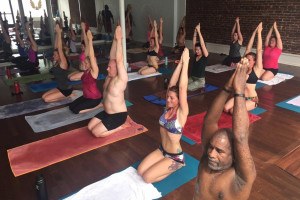What Does It Mean to Age Successfully?
More than half a century after they were born, the baby boomers continue to be a subject of great interest in the media. According to CNN.com, the generation consists of more than 77 million people who were born between the years of 1946 and 1964. Seventy-seven million. From Social Security concerns to the breakdown of bodies, the state of this generation is making headlines everywhere.
As this group of people ages, we find ourselves learning more and more about physical health during the life span. A recent New York Times article featured the term “successful aging” and described it as “a topic of considerable scientific interest.” That article covered two studies examining physical activity later in life. The first, published last fall in the British Journal of Sports Medicine, illustrated that physical exercise later in life is a boon to health. The study participants, 12,000 Australian men between 65 and 83 years old, “were much healthier and less likely to be dead 11 years after the study” if they exercised for 30 minutes roughly five times per week. The second study, which comes out this month in the same publication, shows significant health improvements among exercising adults compared to sedentary adults. Among the results was evidence, surprisingly, that those who start working out during their later years (as opposed to adults who already have been exercising for decades) were significantly healthier than adults who were inactive. From the New York Times summary:
“Those respondents who had been and remained physically active
. . . [had] the lowest incidence of major chronic disease, memory loss and physical disability. But the people who became active in middle-age after having been sedentary in prior years . . . aged almost as successfully. These late-in-life exercisers had about a seven-fold reduction in their risk of becoming ill or infirm after eight years compared with those who became or remained sedentary.”
Of course, exercise is just one component to health. What we put into our bodies is another significant factor. Think of the vitamins you see marketed for “mature” or “50-plus” consumers—they hint at the fact that as we age, our health needs change. Just as young children need to fuel their developing bones, muscles, and organs, and women of childbearing age should get enough folic acid in their diet, the later stages of life bring important nutritional challenges, too. To learn more about them, register for the next free seminar at Source4Women.com, entitled “Aging Gracefully: Adapting to Changing Nutritional Needs.”


